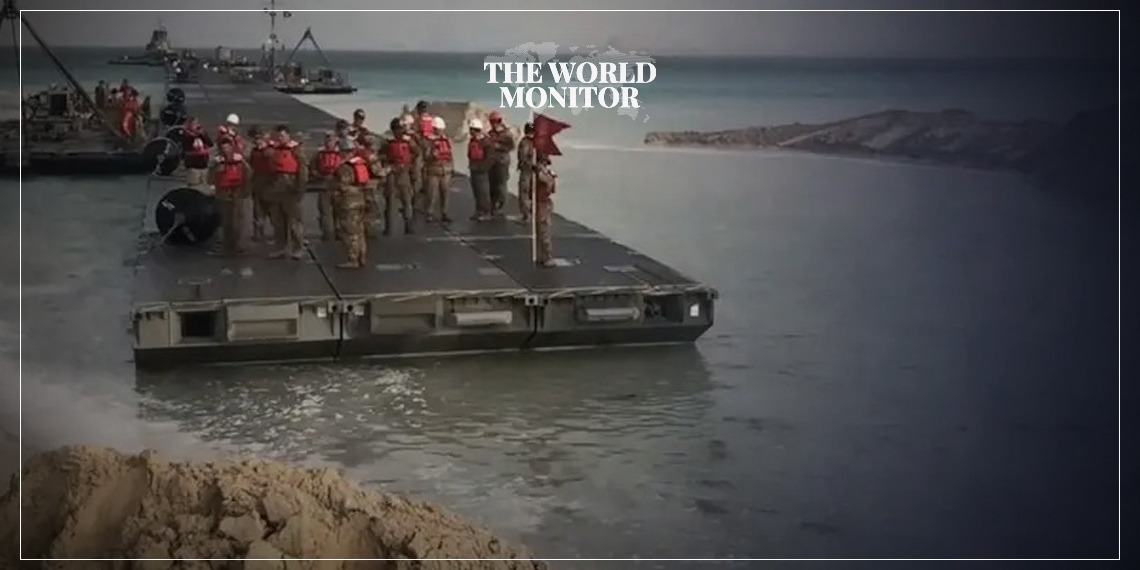The World Food Program has agreed to help deliver aid to starving civilians in Gaza as soon as the U.S. military completes a pier for humanitarian aid delivery by sea, according to U.S. officials on Friday. This involvement is crucial to overcoming one of the major obstacles faced by a U.S. planned project, which has been the reluctance of relief groups to handle the distribution of food and other critical supplies in Gaza amid the lack of significant changes from Israel.
A military attack by Israel on April 1st resulted in the death of seven aid workers from the organization World Central Kitchen, intensifying international criticism of Israel for failing to provide security for humanitarian workers or allowing sufficient quantities of aid through its borders.
President Joe Biden, who has faced criticism himself over the humanitarian crisis in Gaza where he supports the Israeli military campaign against Hamas, announced on March 8 that the U.S. military would build a temporary pier and bridge as an alternative to land routes.
The U.S. Agency for International Development told the Associated Press that it would partner with the World Food Program to deliver humanitarian aid to Gaza via the maritime corridor. The agency added in its statement to the Associated Press, “This is a complex operation that requires coordination among many partners, and our discussions are ongoing… Across Gaza, the safety and security of humanitarian workers are paramount for delivering assistance, and we continue to call for measures that would provide greater assurances to humanitarian workers.”
The agency also stated that U.S. officials and the World Food Program are working on how to deliver aid to Palestinian civilians “in an independent, neutral, and unbiased manner.”
There was no immediate comment from the World Food Program, and a spokesperson for the program did not immediately respond to a request for comment.
Israel has promised to open more border crossings into Gaza and increase the flow of aid, after its drone strikes resulted in the deaths of the seven aid workers who were delivering food to the Palestinian territories.
The war erupted when Hamas militants attacked southern Israel on October 7th, resulting in about 1200 deaths and approximately 250 others taken hostage.
The recent Gaza war, which erupted on October 7, 2023, has been marked by severe humanitarian and economic impacts. Following Hamas’s surprise attack on Israel, Israel responded with intensive military actions that have led to significant casualties and destruction. As of mid-April 2024, the conflict has resulted in over 34,000 Palestinian deaths and significant devastation across the Gaza Strip.
The war has also severely impacted Gaza’s infrastructure, with a substantial portion of homes and commercial facilities destroyed or damaged. Economic activities have nearly halted, with the International Labour Organization noting an almost complete destruction of economic sectors, resulting in massive job losses and deep cuts to Gaza’s GDP. Reconstruction and recovery efforts are anticipated to be extensive and challenging, requiring significant international aid and cooperation.
The journalistic community has suffered greatly, with at least 97 media workers killed since the conflict began, making it one of the deadliest periods for journalists covering a war. The challenges for journalists in Gaza include not only the direct risks from military actions but also issues like disrupted communications and power outages






